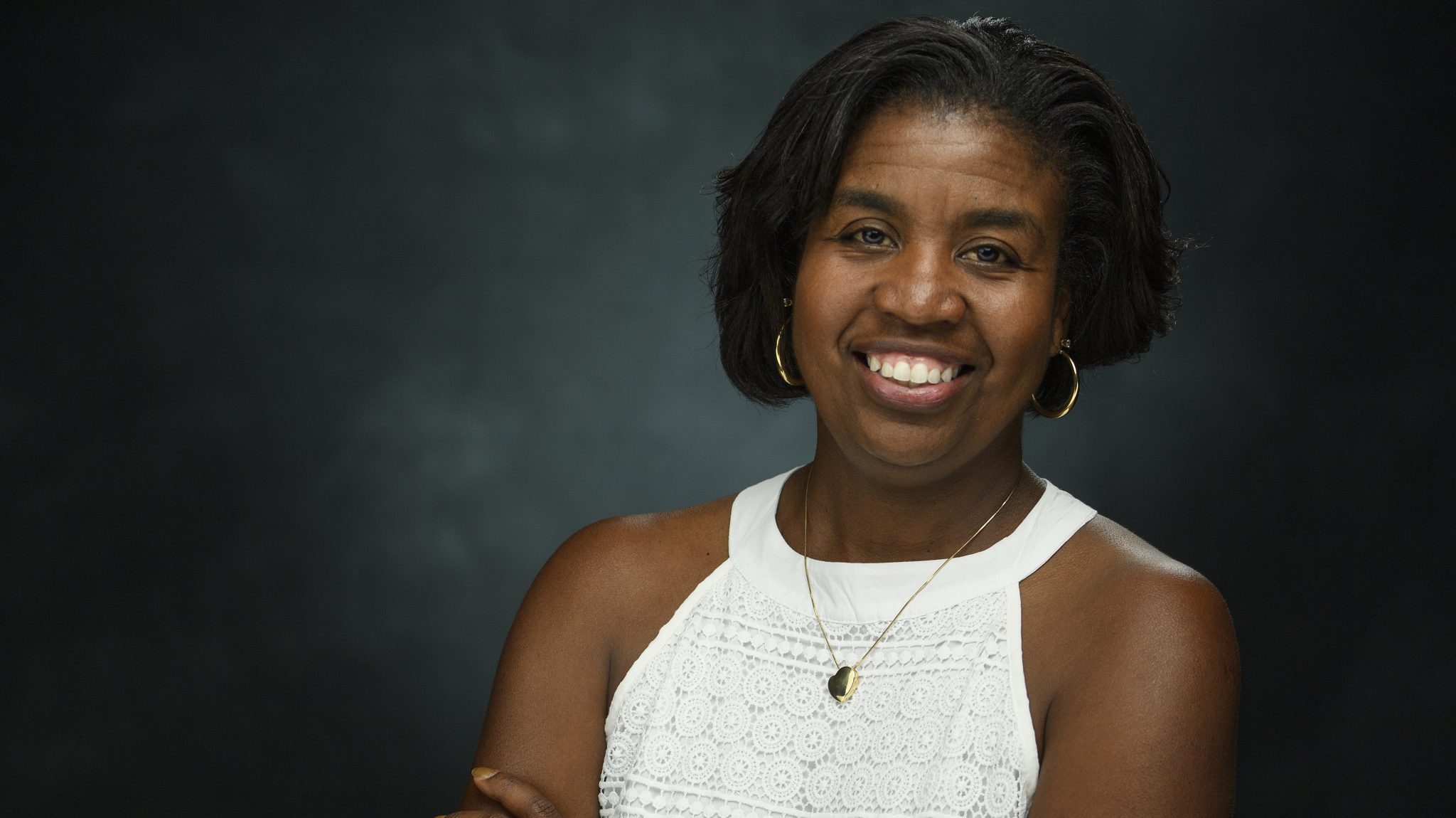
Poet January O’Neil is the University of Mississippi’s John and Renée Grisham Writer in Residence for the 2019-2020 academic year. Photo by Thomas Graning/Ole Miss Digital Imaging Services
OXFORD, Miss. – January O’Neil, an acclaimed poet who weaves environmental elements into her work, is the University of Mississippi‘s John and Renée Grisham Writer in Residence for the 2019-20 academic year.
O’Neil, who comes to UM from Beverly, Massachusetts, is the author of “Rewilding” (CavanKerry Press, 2018); “Misery Islands” (2014), winner of a 2015 Paterson Award for Literary Excellence; and “Underlife” (2009). She also was executive director of the Massachusetts Poetry Festival from 2012 to 2018, and is a member of the Association of Writers and Writing Programs’ board of directors.
Born in Norfolk, Virginia, she earned a bachelor’s degree from Old Dominion University and a Master of Fine Arts from New York University. O’Neil said she hasn’t spent much time in Mississippi, but she is looking forward to having that experience with her two teenage children.
“This is an honor,” O’Neil said. “The opportunity came along at the right time. I was chosen, so it felt like the universe was telling me to come, and I shouldn’t ignore it.
“I’m excited for a full academic year. It’s a unique opportunity for us to broaden our view of diversity and to see the world and a different region of the country.”
John and Renée Grisham Writers in Residence are selected on the strength of their work and provided with housing within walking distance of campus. They teach one class each semester and have ample writing time. They frequently become involved in the university’s close-knit MFA community.
O’Neil hopes to meet new people and forge new connections, as well as get out and explore the area and experience a new environment, which could stimulate her poetic instincts. She aims to have a new book written by the end of her time on campus, which runs from August through the end of May 2020.
“I really do want to take the time to open up new pathways of creativity,” O’Neil said. “I want to look at this as an academic and scholarly opportunity, as well as time to write. I want to take full advantage of the time.
“I want infuse my creativity. I want to explore the area. I also want to open up new pathways and expand my community.”
The poet sees her life as entering the middle phase, and finds herself with children who are old enough to travel and experience the world. She wants to write about what it means to be a black woman writing during this period in history.
“I want to stay open to writing about nature and environmental themes, race and explore the contrast of living in a different part of the country,” O’Neil said. “That part of the country will smell different to me. The landscape will be different. The birds I hear will be different.
“How can I put that into my writing and what does it mean to be a woman entering her half-life with as much energy as earlier years? What does that look like?”
Ivo Kamps, chair of the Department of English, said the university is fortunate to have O’Neil teaching, and he expects students to learn a lot from her.
“Her poetry is absolutely exquisite, and I think our students will learn a great deal from her,” Kamps said. “For one thing, her work will show them that contrivance and obfuscation need not be a hallmark of profound verse, and that beauty and clarity do not equate simplicity. The best poetry – January O’Neil’s poetry – marries accessibility with genuine depth of meaning.”
“I think of O’Neil as a 21st century Emily Dickinson. Students who take her class are in for a genuine revelation.”